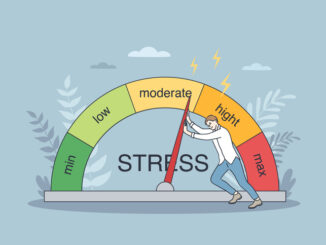
We speak to Sarah Carrie, prinicipal at Leeds East Academy, and Sarah Steele, maths teacher, senior house leader and student events co-ordinator, about winning School of the Year at the UK Parliament Awards, and how they’ve acheived sustainable success in their academy
So, tell us a little bit about your school.
SC: Leeds East Academy is a fantastic school. It serves the community of Seacroft; our student population is incredibly diverse, vibrant, multicultural and really inclusive and it’s on a real journey at the minute. We’ve done a lot of work around setting a new vision – a really aspirational vision for the academy, which is centred around the principle of everyone being exceptional, and focused on the organisational culture and the climate which enables our young people to flourish despite, maybe, some of the challenges they might be faced with.
We’re part of an amazing trust, as well, which has a strong moral purpose and is values–driven; the values set at the top of the organisation absolutely permeate and filter through every element of the organisation. So, we’re very child-focused, very staff-focused, and all about developing the whole person – not just academic potential but also the ability to be citizens who make a great contribution to society and use their ability to influence positively.
Why is sustainability so important for your school?
SS: Over the four years I’ve been here we’ve developed a social action project – it’s about developing young leaders to be the next generation and to be confident leaders – but we also need to educate these young people about the climate emergency, so they’re aware of what they need to do to look after the planet. It’s really important that as a trust, and also as an academy, we are leading by example.
SC: I really want to encourage our students to understand how their behaviours and their choices can impact the environment. We want to develop young people who have a social conscience, and who use their influence to make positive changes. This has a wider remit, and reaches out beyond the academy walls, into the community, and bring about change.
You won ‘School of the Year’ at the UK Parliament Awards. Tell us a bit more about that.
SS: We were absolutely over the moon. I remember Sarah telling me and I was in absolute shock; it’s absolutely brilliant. The student department have worked towards that for the past three years, and it’s gone from strength-to-strength. They’ve won Regional Championships twice and they’ve won two Queen Commonwealth Trust Funds – so they’ve made a massive impact.
I’ve recently been given the role of the Global Schools Advocate as well so, with that and relating it all to sustainable goals, I think that we are really shining in the community at the moment. I think this was a project that meant so much to all of us in school, and the passion of the pupils shone through.
SC: The same students have been involved at every stage of the journey, so I think winning this award shows their commitment and dedication – that they’re actually in it for the long haul. They know, and understand, that it is significant in the current context, and that young, relatable voices are often the ones that are heard by a wider, broader audience. It was an absolute landmark achievement, and nobody could be prouder. It’s really good as well for them to be recognised by the local MP, for him to come and acknowledge their work, and understand the dedication that these young people show. To have it recognised was incredible, absolutely incredible.
What strategies do you use to engage the community with your initiatives?
SS: When the student department get together, they do something called ‘Making Your Mark’ where they identify the topics they’re really passionate about. Take the plastic project, for instance; they’ll talk about what they want to do and then they’ll think, ‘Well, what are we going to do to achieve that?’
So, for instance, at the moment they’re developing a zero-waste sustainable shop. We’ve got a partnership with a sustainable shop which the students reached out to. We’ve also got a community centre which we work with, and they work with the elderly in the community too; the funding that’s raised from the sustainable shop is actually buying warm items of clothing for the elderly.
They’ve been connecting with Leeds Council as well because they’ve been doing some things about the climate change in Leeds. We’ve got a fantastic relationship with the Climate Hub in Seacroft, which has grown from them giving us seeds, and we’re also going to do a big theatrical performance about the UN goals. It’s really exciting.
SC: The students knew what networks they needed to create, and the people that they needed to connect with. They’ve then actively taken responsibility, and reached out to those organisations, gathering and galvanising further support, raising the profile of what it is they intend to achieve.
What advice would you give to other schools wanting to move sustainability further up their agenda?
SC: Always, always, always focus on the why, and make the reason why you are focusing on sustainability explicitly clear to everybody. This needs to come right from the top of the organisation and filter all the way through. Often, we’re asking people to do things without making it really clear as to why those actions, and those behaviours, are important. So, it’s about being absolutely clear about why this is so important, and what the long-term implications are if we don’t make those changes – the long-term effects will be catastrophic if we don’t all start to do our bit.
SS: From the student leadership point of view, they do awareness campaigns. They did a #breakfreeplastic all through July; they had a big display up where they had fish with straws up their noses – they had them wrapped in plastics, to shock a little bit. They’ve gone into primary schools and done assemblies there. They’re really keen on raising awareness. In the building we have a big fishing net that is filled with the bottles that we used in a couple of days! The kids were saying things like, ‘Oh, didn’t realise we’d used all that!’ We use a lot of awareness campaigns in school as well.
SC: The fishing net is really big and it’s very much a focal point; that has helped the students and staff realise the magnitude of the issue – you can see it, you can visualise it; it becomes very tangible and very relatable.
What are your next steps on your sustainability journey?
SS: We’re going to carry on with the zero-waste sustainable shop, because pupils are coming in and buying reusable water bottles, etc. I really do want to find the funding for a biodome and, if not, we want to create some kind of outdoor education centre, to get pupils loving the outdoors and understanding why nature is so important – something which I think this generation do seem to miss.
We’re going to try and achieve more of a neutral footprint by encouraging the students and staff to cycle and walk to school if they can and also to try to see if we can fund more clean energies, such as improving our solar panel offer here, and also looking at hydroponics and the wind turbine.
We were also thinking about our rewilding area; we want to teach the pupils life skills – how to grow their own vegetables, for instance. Food poverty is a massive issue around here, and if they have those kinds of skills where they can grow some tomatoes, or potatoes, anything like that in their garden, I think that would be massively impactful.
COVID quickfire:
Biggest challenge:
SS: From a sustainable perspective it’s the return of single-use plastic. We did so much work on it then we had to turn the water pipes off and buy water bottles. We also had to use plastic masks and use plastic tests which reverses a lot of the work we had done to get rid of single-use plastic in our school.
SC: From a non-sustainable perspective, the challenges of digesting all the information that was released and making sure that it was distilled in a really understandable manner to our parents and our children, so it could be implemented in a manner that reduced anxiety for people.
Biggest achievement:
SS: Winning School of the Year!
Biggest surprise:
SC: Just how amazingly staff, students and parents all pulled together and developed a real community spirit. Everyone came with the same mentality which was – we need to get through this, so we need to do whatever we can to make sure that, despite the challenges, it becomes a great experience in some way for everyone.
Biggest lesson learned:
SS: That when it’s tough we all work together so well – everyone looked after each other’s wellbeing. As much as I didn’t like lockdown, I kind of did in a way, because I could see how much everyone came together.
SC: Sometimes it’s important to rip up the rule book, take a step back and do things differently. The pandemic forced us to do things very differently, and some of those things have been really beneficial, and I think sometimes you have to ask, ‘Why do we do it like this?’ ‘Because we’ve always done it like this’ is not a good enough answer. So that was the biggest lesson learned, I think.




Be the first to comment